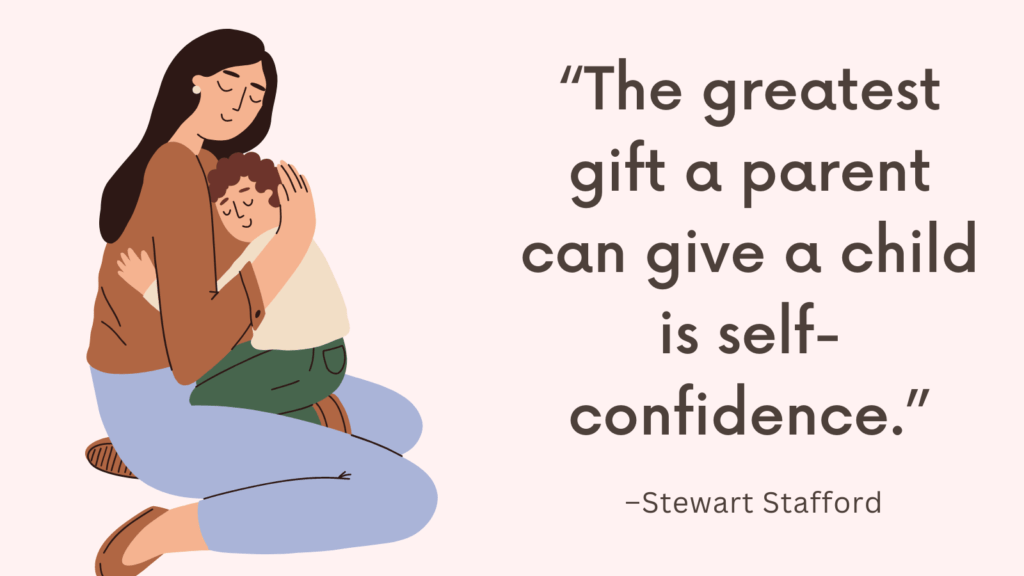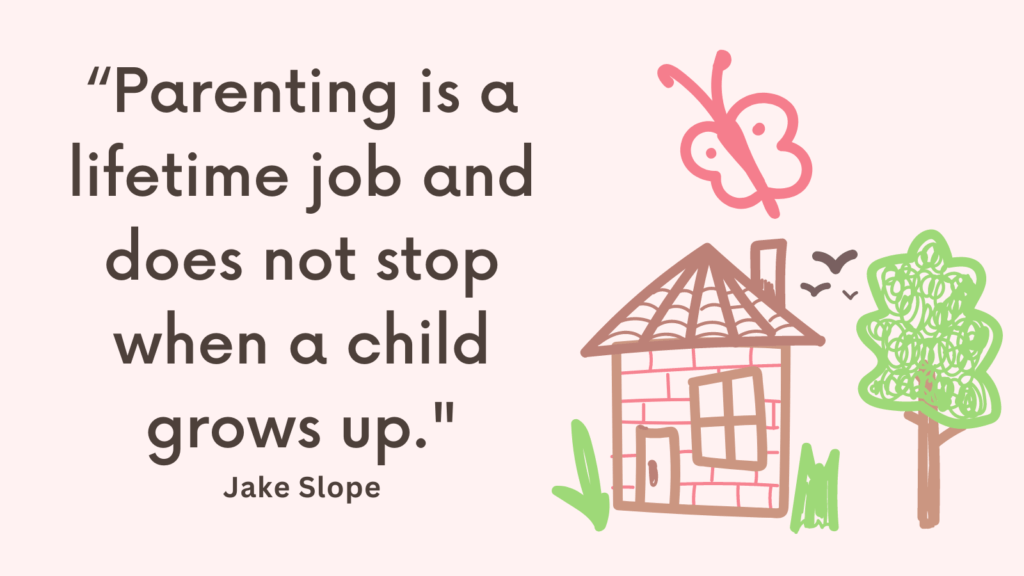In this post, you’re going to learn how to build confidence in a sensitive child.
Who Is the Sensitive Child?
A sensitive child refers to a child who possesses a heightened sensitivity or emotional responsiveness compared to other children.
These individuals tend to be highly attuned to their environment, including the emotions and behaviors of others.
Sensitive children often display deep empathy, compassion, and a strong emotional awareness.
They may have intense reactions to both positive and negative stimuli, which can sometimes be overwhelming for them.
It is important to note that sensitivity in children can manifest in various ways and can be influenced by a combination of genetic, environmental, and neurological factors.
Some sensitive children may exhibit shyness or introversion, while others may be more outgoing but still deeply affected by external stimuli.
Each child’s sensitivity is unique to them.
Sensitive children often benefit from understanding and support from caregivers, as they may require additional help navigating their emotions and managing external stimuli.
By recognizing and valuing their sensitivity, we can create an environment that fosters their growth, self-esteem, and overall well-being.
Related: Is My Child Highly Sensitive Quiz
How to Build Confidence in a Sensitive Child?
Building confidence in a sensitive child requires a nurturing and understanding approach. Here are some scientific suggestions that can help foster confidence:
1. Validate their feelings
When a sensitive child expresses their emotions, it’s important to acknowledge and accept what they’re going through without judgment.
By doing so, you are showing them that their feelings are valid and deserving of attention.
For example, if a child feels anxious about starting school, instead of dismissing their fears, you can say something like, “I understand that starting a new school can be scary. It’s normal to feel nervous, but I believe in your abilities to overcome it.”
This simple act of validation creates a safe and supportive environment for the child to express themselves without feeling judged or overwhelmed.
Furthermore, it helps them build confidence by teaching them to trust their own emotions and rely on their own inner strength.
Related: Best 10 Children’s Books About Self Esteem
2. Encourage self-expression
One effective way to encourage self-expression is to create a safe and supportive environment where the child feels free to express their thoughts and emotions without judgment or criticism.
This can be done by actively listening to them, valuing their opinions and ideas, and encouraging them to share their feelings openly.
For instance, you could have regular family discussions where each member takes turns expressing their thoughts and experiences, allowing the sensitive child to contribute and feel heard.
3. Focus on strengths
By emphasizing and celebrating their unique abilities, talents, and positive qualities, you can help boost their self-esteem.
For example, if the child loves drawing, encouraging them to continue and praising their artwork can help instill a sense of achievement and confidence.
It’s also important to create a supportive environment where the child feels safe expressing their feelings.
Related: Best 10 Books About HSP (Highly Sensitive Person)
4. Teach problem-solving skills
By equipping children with these skills, they become better able to navigate challenging situations and gain a sense of control over their own lives.
For example, you could encourage your child to identify a problem they are facing, such as feeling left out on the playground.
Then, guide them through the process of brainstorming potential solutions, evaluating each one, and choosing the most suitable option.
By actively involving them in finding solutions, you are empowering them to take charge of their own circumstances.
This helps to instill a sense of confidence in their ability to handle difficult situations and gives them a sense of accomplishment when they successfully solve a problem.
Related: Best 10 Gentle Parenting Books
5. Encourage social connections
It is important for sensitive children to feel supported and accepted in social settings, as this can greatly contribute to their self-esteem.
Encourage your child to engage in activities where they can interact with others who share similar interests or hobbies.
For instance, signing them up for a club or sports team can provide opportunities for positive social interactions.
Additionally, playdates with friends or inviting classmates over for group projects can foster a sense of belonging and boost their confidence.
6. Set achievable goals
By setting realistic goals, parents and caregivers can help these children develop a sense of accomplishment, leading to increased self-esteem and confidence.
For example, if a child struggles with speaking up in class, start by setting a goal to contribute with one idea during a group discussion.
As the child successfully achieves these smaller goals, their confidence will grow, allowing them to tackle bigger challenges over time.
It’s important to be patient and supportive throughout this journey, providing encouragement and reassurance when setbacks occur.
By breaking down larger tasks into manageable steps, sensitive children can gain confidence while developing valuable skills that will serve them well in the future.
Related: Top 11 Parenting Myths That Are All Too Easy To Believe
7. Practice self-care
Teaching a child how to take care of their needs not only helps them develop crucial life skills, but also boosts their self-esteem.
Start by helping them identify and understand their emotions.
Encourage open communication and provide a safe space for them to express their feelings.
Teach them simple self-care techniques, such as taking deep breaths or engaging in activities they enjoy, like drawing or reading.
By practicing self-care, children learn to prioritize their own well-being and develop a positive sense of self.
Additionally, leading by example can have a profound impact on a child’s confidence.
Show them that you prioritize self-care by taking time for yourself, engaging in hobbies, or seeking support when needed.
This sends a powerful message that taking care of oneself is important and valued.
Related: How To Deescalate A Child? Top 12 Tips
How Building Confidence in a Sensitive Child Can Help?
Building confidence in a sensitive child can have numerous positive effects on their overall well-being and development. Here are some key benefits:
1. Emotional resilience
A confident sensitive child is better equipped to navigate and manage their emotions.
They are more likely to have a positive outlook, handle stressors effectively, and bounce back from setbacks.
2. Improved self-esteem
Confidence helps sensitive children develop a healthy sense of self-worth.
They learn to value themselves, their opinions, and abilities.
This fosters a positive self-image and reduces the impact of external criticisms.
3. Better social interactions
Confidence allows sensitive children to engage more comfortably in social situations.
They are more likely to initiate conversations, express themselves assertively, and build meaningful relationships with others.
4. Enhanced academic performance
With increased confidence, sensitive children are more willing to take risks, ask questions, and participate actively in classroom activities.
This can lead to improved academic performance as they feel more comfortable sharing their thoughts and ideas.
5. Increased problem-solving skills
Confident sensitive children are more likely to approach challenges with a positive mindset.
They develop problem-solving skills and the belief that they have the ability to find solutions, leading to increased independence and resourcefulness.
Related: Helicopter Parenting: Pros and Cons of Over-Parenting
6. Greater self-advocacy
Building confidence helps sensitive children advocate for themselves.
They are more likely to express their needs, seek support when necessary, and make choices aligned with their values.
This empowers them to have a voice and assert their boundaries.
7. Long-term mental health benefits
Developing confidence in childhood can have enduring effects on mental health outcomes.
It can reduce the risk of developing anxiety or depression later in life by providing a foundation of self-assurance and coping skills.
Related: Top +70 What Do You Enjoy About Your Child Examples
Conclusion
Every child is unique, and building confidence is an ongoing process.
If you have concerns about your child’s sensitivity or self-esteem, consider seeking guidance from a qualified child psychologist who can provide personalized support and strategies.




